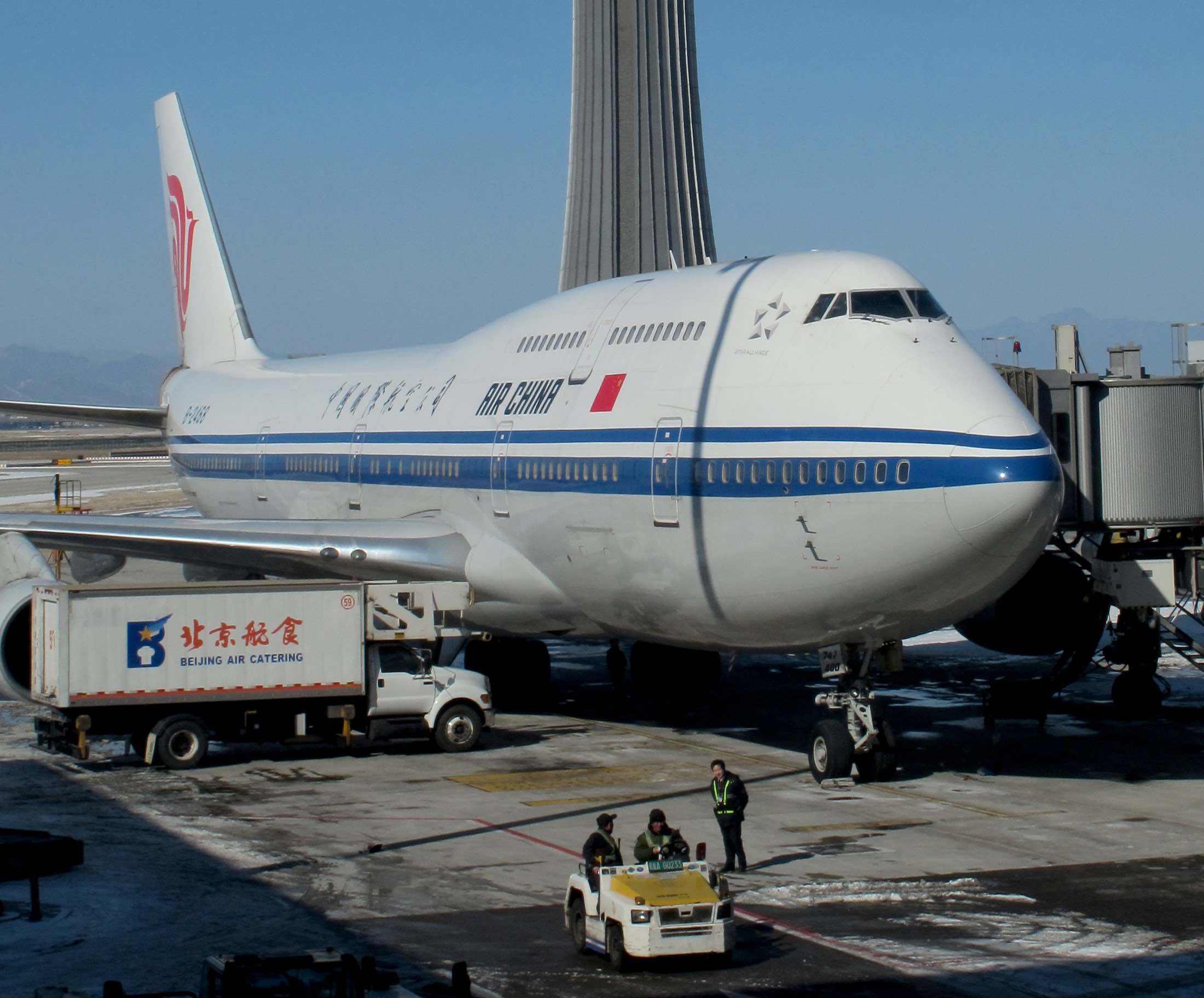
Look past the two-faced hypocrisy of a recent letter from US airlines and unions urging regulators to block Chinese carriers from adding more transpacific flights and you will find a simple attempt to keep fares high. US regulators who blocked the JetBlue – Spirit merger on competitive grounds should certainly ignore this letter if they care at all about keeping prices competitive for consumers…
Why US Carriers Want To Block Chinese Carriers From USA Growth
Let’s first look at the letter, signed by an airline lobbying group (Airlines for America) representing major US airlines and three unions (ALPA and APA, representing pilots, and AFA, representing flight attendants).
On behalf of the U.S. aviation industry, we are writing to urge you pause additional passenger flights between the United States and the People’s Republic of China until U.S. workers and businesses are guaranteed equality of access in the marketplace, free from the existing harmful anti-competitive policies of the Chinese government.
Following the outbreak of COVID-19, China unilaterally suspended the bilateral air services agreement with the U.S. and effectively closed the market to U.S. carriers. During this period, the Chinese implemented strict limits on market access, as well as imposing challenging rules effecting operations, customers and the treatment of our airline crew. These actions demonstrated the clear need for the U.S. government to establish a policy that protects U.S. aviation workers, industry and air travelers.
The competitive disadvantage is harmful to the approximately 315,000 workers employed by U.S. passenger airlines that serve China. If the growth of the Chinese aviation market is allowed to continue unchecked and without concern for equality of access in the market, flights will continue to be relinquished to Chinese carriers at the expense of U.S. workers and businesses.
The anti-competitive relationship between the two countries is highlighted by the advantage Chinese airlines receive by continuing to access Russian airspace, while U.S. carriers stopped flying through Russian airspace at the start of Russia’s invasion of Ukraine in March 2022.
Even for those flights not operating through Russian airspace, there is still a competitive disadvantage with Chinese airlines enjoying certain protections stemming from the Chinese airline’s relationships with their government. This allows Chinese airlines to operate irrespective of standard market conditions. Much like the current and previous administrations have addressed anti-competitive practices and overcapacity with China, we believe the concerns of U.S. carriers today are no different.
We strongly urge the U.S. government to pause additional flights until U.S. workers and businesses are guaranteed equality of access in the marketplace without China’s existing damaging anti-competitive policies. We ask the government to take the time to address these significant competitive issues and protect U.S. aviation workers, travelers and airlines.
We’ll get to the airspace issue in a moment, but the objection that “Chinese airlines enjoying certain protections stemming from the Chinese airline’s relationships with their government” is simply absurd.
Why, you might ask? After all, Chinese carriers received billions of dollars in government aid during the pandemic.
Yes, but US carriers received tens of billions of dollars in aid. What a farce to complain about state aid and government protections when US carriers were bailed out, unlike any other country during the pandemic.
It’s sickening.
But what about the airspace issue? I think it’s a more legitimate gripe, but only slightly more so. Indeed, the ability for Chinese carriers to use US airspace while US carriers cannot does put US carriers at a disadvantage…there are safety concerns too. But as noted by VFTW, the US can condition future routes on avoiding that airspace…that may not totally level the playing field, but helps…
The fact that Gulf carriers and other Asian carriers utilize Russian airspace does not justify China doing so…but that’s hypocrisy too. Why aren’t US airlines going after Air India, Emirates, Qatar Airways, or Etihad as well? Could that be because they have closer partnerships with each of them?
The truth is that US carriers do not want more transpacific space because it erodes yields and profitability. US carriers do not want to return to an era of $500 transpacific fares and fear more capacity from Chinese carriers will drive prices down.
That’s understandable…but US regulators should not kowtow to US airlines but be concerned about protecting competition for US consumers. More flights should be encouraged: no one is forced to operate more services, but if Chinese carriers wish to add more flights, we might see fares fall to more historic levels, which would be quite welcome.
Let’s hope that US regulators do not fall for such a spurious argument against Chinese carriers.




Chinese food leaves one hungry .
Chinese airplane seats leaves one cramped and uncomfortable .
Alex, ‘what are two thing fat American might say?’
You are free to fly other airlines. Same can be said about Hawaiian Airlines, inadequate food and awfully cramped seats.
If U.S. DOT standardized the rules for ALL airlines, banning any flights coming or leaving U.S. soil from using Russia airspace, there will be less controversies.
If U.S. airlines want to limit Chinese carriers flights, why does they turn a blind eye on Hong Kong airlines like Cathay Pacific? Hong Kong is now part of China, and CX flights utilize Russia airspace when fly to Chicago and New York.
But secondary Chinese cities don’t have money to subsidize flights anymore. Those were the only sub-$500 fares before the pandemic.
If those sub-UD$500 flights to U.S. benefit the leader’s reputation or career path, provincial or city governments in China will find the money to subsidized it. One should not analyze the issue purely from financial perspective.
I just wish that the US would block all non-premium airlines from even flying…then everyone could come to understand just how perfect the world’s ONLY premium airline, Delta, truly is.
China brought this on themselves. We had an aviation agreement with many countries and only China disregarded theirs. So now they come begging to add flights back and we should allow them to add flights? No way. It benefited them to block us from flying there so we will block them.
I hope not. Chinese airlines offered really competitive fares from Asia to the US.
Don’t worry, with opinions like this Matt you will live long enough to see only Chinese owned airlines in the US. Cutting them off is only delaying the inevitable but it’s a small step in the right director. You saving a couple bucks for a flight must mean more to you than seeing what’s going on around you. China is our biggest enemy in every way and it isn’t even close for 2nd.
Well said. When USA airlines collude on pretty much anything you can bet the farm that if they get their way it will be bad for the flying public.
I’m more than ok keeping out a few more Chinese businesses out of the USA. I’ll eat the higher costs.
Edit: “Indeed, the ability for Chinese carriers to use *Russian* airspace while US carriers cannot”
Can’t the US impose sanctions on airlines that use Russian airspace? The US doesn’t want to.
If US carriers are afraid of low fares from mainland Chinese carriers, blame the American people for using those carriers. I would not fly them.
Aren’t the Chinese airlines partly owned by the government? It is not just simply aids and financial supports received (similar to the U.S. airlines receiving from the U.S. government). The management teams and boards are appointed by the government.
We can also say the same about ME 3 airlines.
I do agree with Matt’s piece on US airlines being self-serving on this issue. If using Russian air space is an issue, then it has to apply to all airlines.
Completely justified.
China restricts US carriers to only a few slots, but expects the US to give Chinese carriers as many as they want
You ignored that, Matthew, in your anecdotal response.
That is not true. It is reciprocal. The US may be willing to theoretically offer more slots than China, but the current 50 weekly slots are underutilized right now…so no, you are incorrect.
This sort of thing happens in markets all over the world. Germany, Lufthansa and Emriates spring to mind and now we also seem to have Germany, Lufthansa and Qatar. Why would you fly Lufthansa if you had access to those two alternatives so their access to the market is limited. Then look at Germany, Lufthansa and Turkish who Lufthansa treat differently to any other Star Alliance carrier, blocked out of T2 at MUC, much lower mileage earnings and opportunity if you fly Turkish, LH fares that earn nothing in Miles & Smiles even in business class. The whole thing stinks.
Use of Russian space by Chinese carriers has nothing to do with this dilemma . If their grevience is genuine , China should offer bilateral concessions to US carriers .